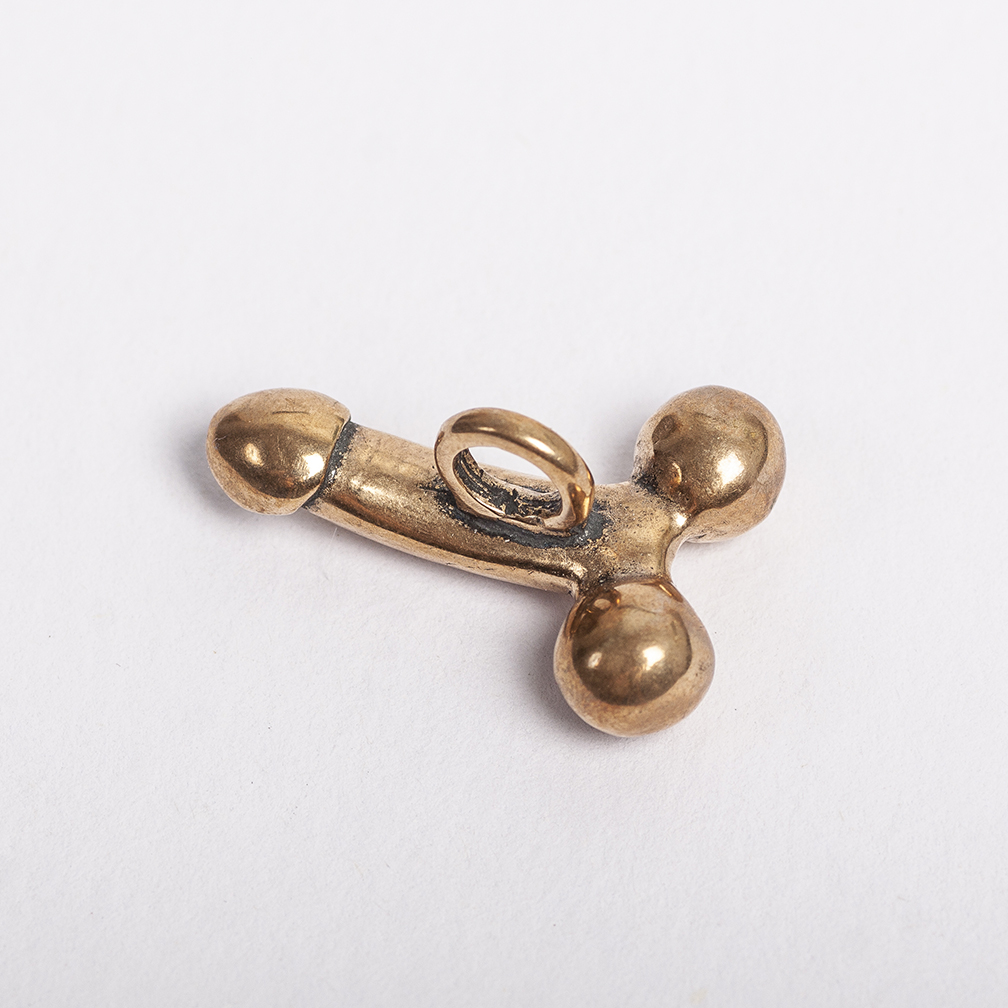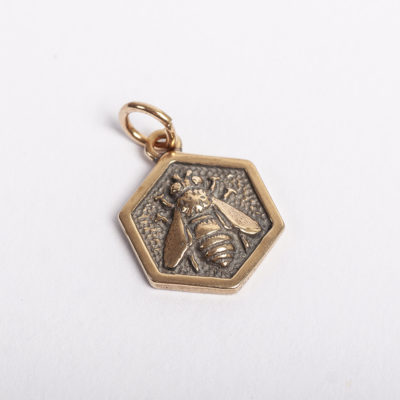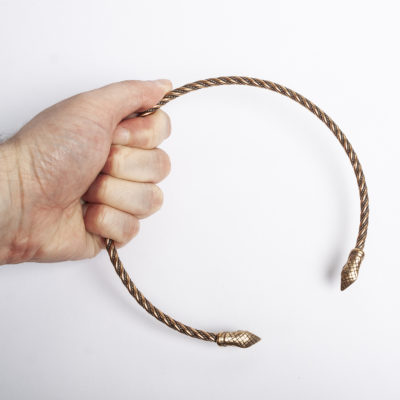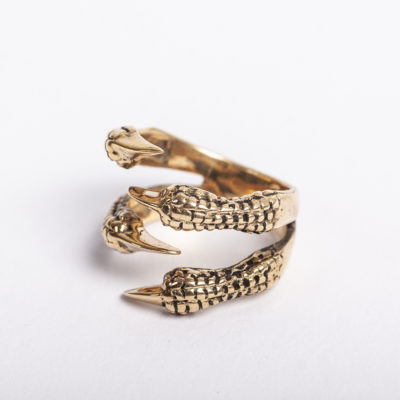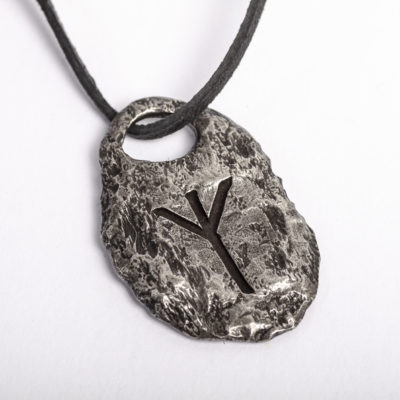Description
Roman luxury fascinus talisman / pendant. Material: Bronze
Size approx 1.6 x 2.6 cm
Roman Fascinus History (Source: Wikipedia):
In ancient Roman religion and magic, the fascinus or fascinum was the embodiment of the divine phallus. The word can refer to phallus effigies and amulets, and to the spells used to invoke his divine protection.
Etymology
The English word “fascinate” ultimately derives from Latin fascinum and the related verb fascinare, “to use the power of the fascinus”, that is, “to practice magic” and hence “to enchant, bewitch”. Catullus uses the verb at the end of Carmen 7, a hendecasyllabic poem addressing his lover Lesbia; he expresses his infinite desire for kisses that cannot be counted by voyeurs nor “fascinated” (put under a spell) by a malicious tongue; such bliss, as also in Carmen 5, potentially attracts invidia.[2]
Fescennine Verses, the satiric and often lewd songs or chants performed on various social occasions, may have been so-named from the fascinum; ancient sources propose this etymology along with an alternative origin from Fescennia, a small town in Etruria.[3]



